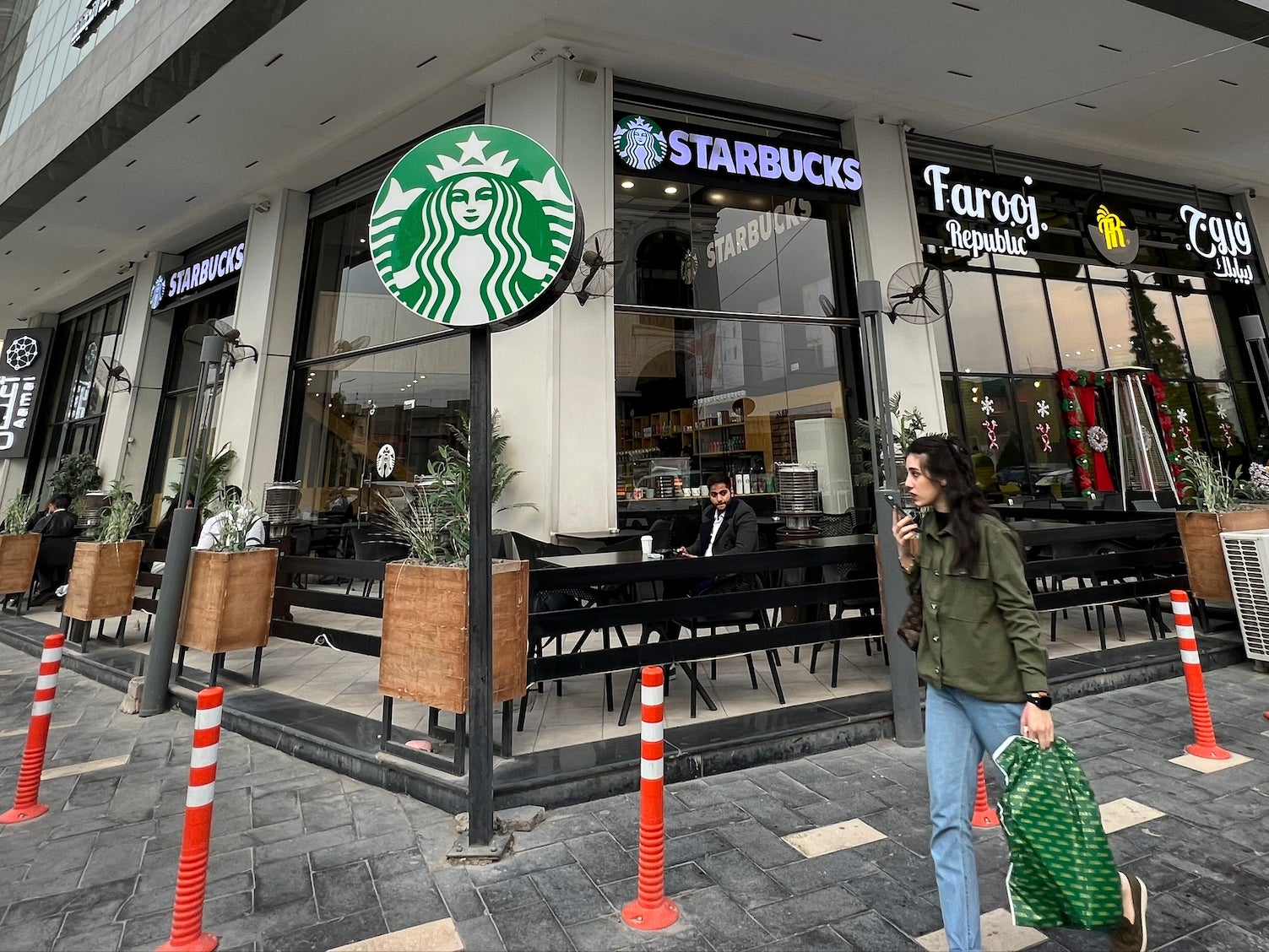Iraq prime minister orders crackdown on trademark violations
Iraq's prime minister has ordered a crackdown on local businesses operating under the names of international brands without legal permission

Your support helps us to tell the story
From reproductive rights to climate change to Big Tech, The Independent is on the ground when the story is developing. Whether it's investigating the financials of Elon Musk's pro-Trump PAC or producing our latest documentary, 'The A Word', which shines a light on the American women fighting for reproductive rights, we know how important it is to parse out the facts from the messaging.
At such a critical moment in US history, we need reporters on the ground. Your donation allows us to keep sending journalists to speak to both sides of the story.
The Independent is trusted by Americans across the entire political spectrum. And unlike many other quality news outlets, we choose not to lock Americans out of our reporting and analysis with paywalls. We believe quality journalism should be available to everyone, paid for by those who can afford it.
Your support makes all the difference.Iraq’s prime minister has ordered a crackdown on local businesses operating under the names of international brands without legal permission, his office said Wednesday.
The move by the premier, Mohammed Shia al-Sudani, comes after The Associated Press reported last week that Iraq has become a major center of trademark violations and piracy.
In one prominent example, a chain of fake Starbucks has been operating under the international coffee company’s logo in Baghdad, the Iraqi capital. Starbucks filed a lawsuit in an attempt to shut down the trademark violation, but the case was halted after the owner allegedly threatened lawyers hired by the coffee house.
Amin Makhsusi, the owner of the fake branches, had admitted to the AP that he operated the stores without a license from Starbucks but denied making threats. He said he had first tried to obtain a license legally, but after being turned down, decided to open the store anyway.
The statement from al-Sudani's office said that trademark infringements are “a violation of the law, and a crime that harms the business environment and foreign investments” as well as harming "Iraq’s reputation and its ability to attract major companies and institutions with internationally registered brands and trademarks.”
It said that Iraqi authorities had taken “legal measures” against a number of businesses found to be operating under fake trademarks, but did not specify which ones.
Asked whether the government had ordered the “Starbucks” stores to be shut down, Yahia Rasool, a spokesperson for al-Sudani, declined to comment beyond the statement issued by his office.
At one of the unauthorized “Starbucks” branches in Baghdad, the signs bearing the logo had been removed from the storefront by Wednesday and the main entrance was shuttered by a roll-down metal cover. However, another door remained open and the shop was still doing business inside, serving coffee in Starbucks-brand paper cups.
Makhsusi told the AP that the stores had taken down the “Starbucks” signs and logos under orders from security officials, but that they were still selling the stock of Starbucks coffee and cups, bought retail, which they had to “get rid of.”
The chain will change its name, he said, to be able to operate legally.
However, the issue of counterfeiting and piracy in Iraq goes beyond coffee.
The broadcaster beIN has sent cease-and-desist letters to Earthlink, Iraq’s largest internet service provider, alleging that a free streaming service offered to its subscribers is composed almost entirely of pirated content.
And at least two U.S. pharmaceutical companies have approached the U.S. Chamber of Commerce with complaints that their trademark was being used to sell counterfeit life-saving medication by Iraqi companies.
___
Associated Press reporters Ahmed Sami Fattah and Ali Abdul-Hassan in Baghdad contributed reporting.